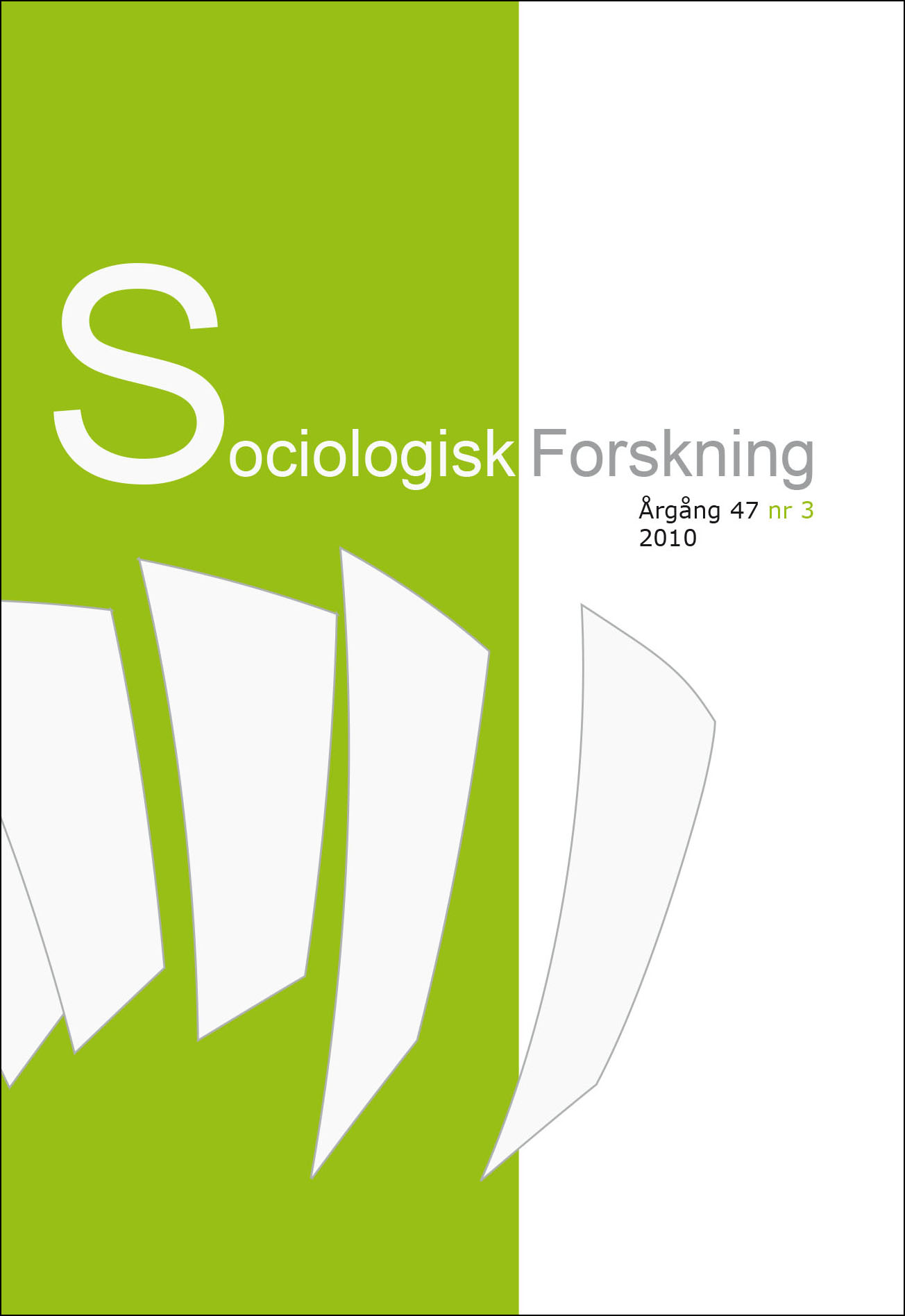Akademisk kvalitet, vad är det?
Om utarmningen av den akademiska autonomin
DOI:
https://doi.org/10.37062/sf.47.18463Nyckelord:
academic autonomy, the Bologna process, research policy, education policyAbstract
What is academic quality? On the decline of academic autonomy
In light of the transformations that universities currently undergo, with Bologna as a keyword, the following questions are put: What ideals lie behind the assessment of academic “excellence” and “quality”? What agents have the ability to define what is good science and education today? These questions are approached through Pierre Bourdieus concept of field.
Looking at the development the last decade, traditional academic values, such as the ideal of universal knowledge as (personal and collective) enrichment and the intellectual independence “of all political authority and economic power”, as stated in the Magna Charta Universitatum, seem to have emerged into the shadow of employability, knowledge control, competitiveness, and economic benefit.
In connection with the formation of concepts such as “the knowledge society” and “knowledge based economies” the university has received a somewhat different and more central role in society. The university has come to take the role more of a knowledge producing enterprise clearly directed towards the surrounding society. There are higher demands on academic knowledge to contribute to economic, regional or national development and competitiveness. When the university is regarded as a knowledge company whose task is to accoun tfor the requests of the students, the labour market, and the business world it undertakes to follow trends and short term social phases rather than to critically examine them, which has been a traditional task for the university. If the academic work is guided by the market economical principle, that the client requests decide what quality is, instead of the experts on the academic field themselves (i.e. the scientists,) it is obviously not scientific ideals that constitute the criteria for what is good science and education.
Downloads
Publicerad
Referera så här
Nummer
Sektion
Licens
Allt material i Sociologisk Forskning publiceras med omedelbar öppen tillgång (open access), under Creative Commons-licensen CC BY-NC-ND 4.0.
Allt innehåll i tidskriften är fritt tillgängligt utan kostnad och får för icke-kommersiella syften fritt läsas, laddas ned, kopieras, delas, skrivas ut och länkas. Innehållet får dock inte ändras. När innehållet används måste författare och källa anges. Upphovsrätten till innehållet tillhör respektive författare. Inga publiceringsavgifter tas ut.





